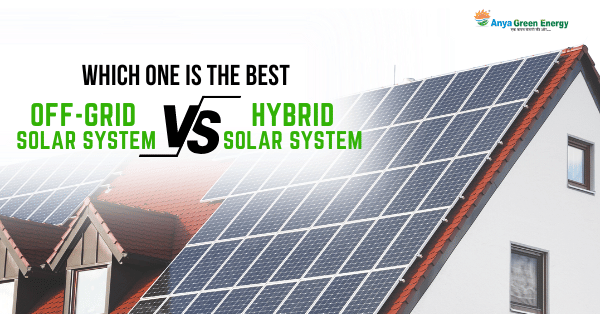HYBRID SOLAR SYSTEM FOR SUGAR INDUSTRY
In the dynamic landscape of today’s industries, the sugar sector stands out as a vital player in global agriculture and food production. With its energy-intensive operations, it’s imperative for the sugar industry to seek sustainable energy solutions. The advent of hybrid solar systems has emerged as a game-changing technology, offering a tailored, eco-friendly power source for this crucial sector.
GET HYBRID SOLAR SYSTEM FOR SUGAR INDUSTRY

Why choose hybrid solar system for sugar industry ?
The sugar industry, known for its energy-intensive processes, requires a reliable and consistent power supply to ensure uninterrupted operations. The hybrid solar system for sugar industry presents a unique proposition by seamlessly combining solar energy with conventional power sources. This integration guarantees an uninterrupted supply of energy, regardless of weather conditions or time of day, ensuring seamless operations.
Importance of hybrid solar system for sugar industry
- Environmental Conservation:
The sugar industry, like many others, is under increasing pressure to reduce its carbon footprint and adopt sustainable practices. Hybrid solar systems for the sugar industry play a pivotal role in achieving this goal. By harnessing the inexhaustible power of the sun, businesses can substantially decrease their reliance on fossil fuels, thus mitigating their environmental impact and contributing to global efforts to combat climate change.
- Operational Cost Reduction:
One of the primary advantages of incorporating hybrid solar system for sugar industry lies in the significant cost savings. As a sector with tight profit margins, reducing energy expenses is paramount. By generating their own electricity through solar panels, sugar mills and refineries can significantly diminish their reliance on the grid, resulting in substantial savings over time.
- Energy Security:
In a rapidly changing energy landscape, establishing independence from fluctuating energy markets is essential for the stability and growth of sugar-related enterprises. Hybrid solar systems grant a degree of energy self-sufficiency, enabling businesses to exert greater control over their energy supply and insulating them from market volatility.
Benefits of hybrid solar system for sugar industry
- Reliability and Continuity:
Uninterrupted power supply is critical for the sugar industry’s round-the-clock operations. Hybrid solar systems ensure a seamless transition between solar and conventional energy sources, guaranteeing a constant and reliable power supply, irrespective of external conditions.
- Scalability:
The modular nature of hybrid solar systems allows for easy expansion to meet growing energy demands. This scalability is invaluable for sugar mills and refineries, which may experience fluctuations in energy requirements due to seasonal variations or business expansion.
- Regulatory Compliance:
Governments worldwide are enacting stricter regulations and providing incentives to promote renewable energy adoption. Investing in hybrid solar systems ensures compliance with current and future environmental mandates, avoiding potential penalties and enjoying the benefits of government incentives.
- Enhanced Reputation:
By embracing sustainable practices, sugar-related businesses position themselves as responsible industry leaders. This commitment to environmental stewardship not only boosts brand image but also resonates with a growing market of eco-conscious consumers, potentially leading to increased customer loyalty and market share.
In conclusion, the integration of hybrid solar systems marks a significant step forward for the sugar industry, offering a powerful tool to enhance sustainability, reduce costs, and secure a reliable energy supply. As the global shift towards sustainable practices gains momentum, adopting hybrid solar systems for the sugar industry is not just a strategic choice; it’s an imperative. By harnessing the abundant power of the sun, sugar-related businesses can not only bolster their bottom line but also contribute to a greener, more sustainable world. This innovative technology is set to redefine the future of the sugar industry, paving the way for a more environmentally conscious and economically viable sector.


